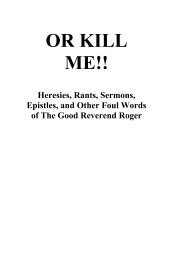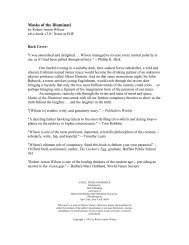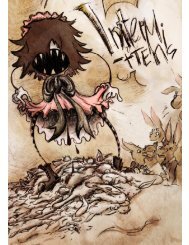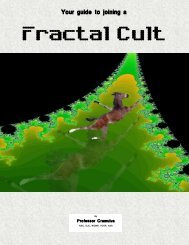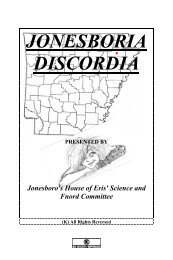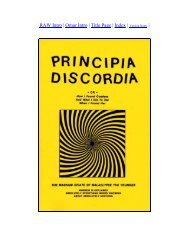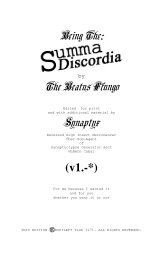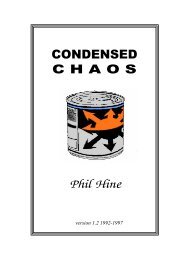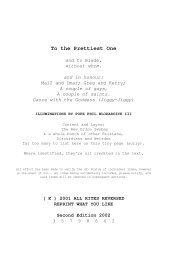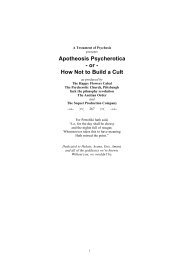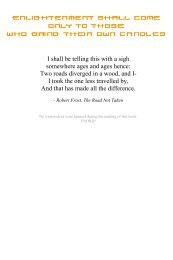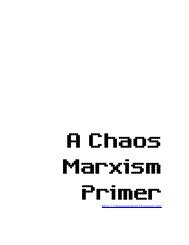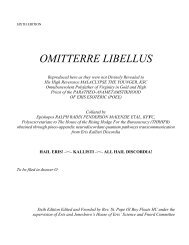Coincidance - Principia Discordia
Coincidance - Principia Discordia
Coincidance - Principia Discordia
You also want an ePaper? Increase the reach of your titles
YUMPU automatically turns print PDFs into web optimized ePapers that Google loves.
54 COINCIDANCE<br />
our religious progenitor, Jesus) our most influential poet-dramatist, Shakespeare,<br />
was a distinctly oral type. A fairly consistent imagery of interrelated<br />
themes of sucking and chewing runs through all the plays and sonnets and<br />
has helped scholars determine that contrary to more romantic theories they<br />
are all the work of one person. (Examples: "Sucking the honey of his<br />
vows"—Hamlet; "If music be the food of love, play on"—Twelfth Night; "Where<br />
the bee sucks, there suck I"—The Tempest; "What a candy deal of courtesy...<br />
"—Henry IV, Part One.) Oscar Wilde's theory that the bard was homosexual,<br />
or bisexual, is not as well-established as gay liberation writers like to think—<br />
Shakespeare's actual imagery is virtually always heterosexual, as Eric<br />
Partridge demonstrates in Shakespeare's Bawdy by simply listing all the sexual<br />
references in the complete works. But, like Jesus, he had so strong a tender<br />
("feminine") component that people who identify masculinity with brutality<br />
are naturally inclined to think he was queer. The nicknames recorded by his<br />
contemporaries—"Sweet Will" and "Gentle Will"—indicate rather clearly<br />
that this bearded, bald-headed, chronically impoverished, socially unacceptable<br />
and runt-sized son of a small-town butcher was much closer, in type, to<br />
Allen Ginsberg than to Ernest Hemingway. Nevertheless, he adored the<br />
ladies—literally—and it seems more than a few of them adored him in<br />
return. It is apt that Venus is the aggressive seducer of Adonis in his long<br />
poem on that legend; men of this type very often "play the waiting game" (as<br />
Kurt Weill called it in September Song) and allow the woman to make the<br />
advances. (If they are chess players, they will favor the "soft" Reti or<br />
Alekhine openings instead of the aggressive center games.) James Joyce<br />
even argued, on the basis of the sexual imagery in the plays, that Anne<br />
Hathaway had seduced Shakespeare; certainly, theirs was a slightly forced<br />
wedding, the first child being born six months after the marriage ceremony.<br />
The bard's romanticism, which no English or American poet has ever<br />
managed to escape catching to some degree, comes right out of Eleanor's<br />
and Pierre Vidal's Sufi-influenced sexual mysticism, as we have seen.<br />
Another influence, as Francis Yates has argued plausibly in Giordano Bruno<br />
and the Hermetic Tradition, was the arch-heretic Bruno of Nola, burned at the<br />
stake in Rome in 1600. Bruno seems to have been the model for Berowne in<br />
Shakespeare's Love's Labour's Lost. He was in England around 1583-85 and his<br />
sonnet sequence, De gli eroici furori, published at Oxford in 1585, is a<br />
celebration of sexual love with interspersed prose passages relating these<br />
poems to the mystic quest for Unity (Freud's "oceanic experience").<br />
Berowne's great speech in Love's Labour's Lost—<br />
For valour is not Love a Hercules<br />
Still climbing trees in the Hesperides?<br />
Subtle as Sphinx, as sweet and musical



